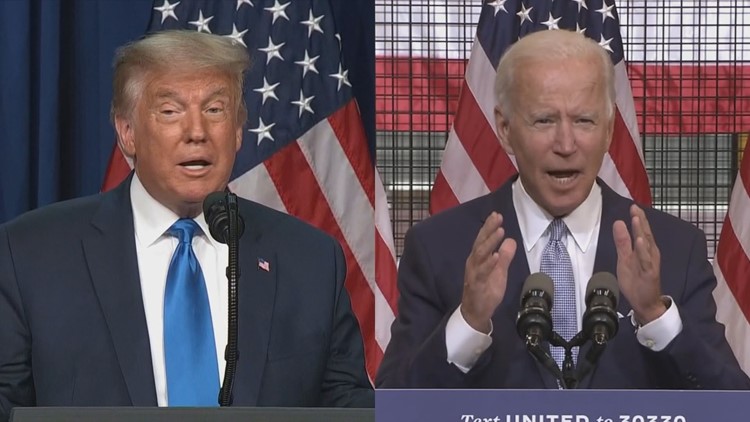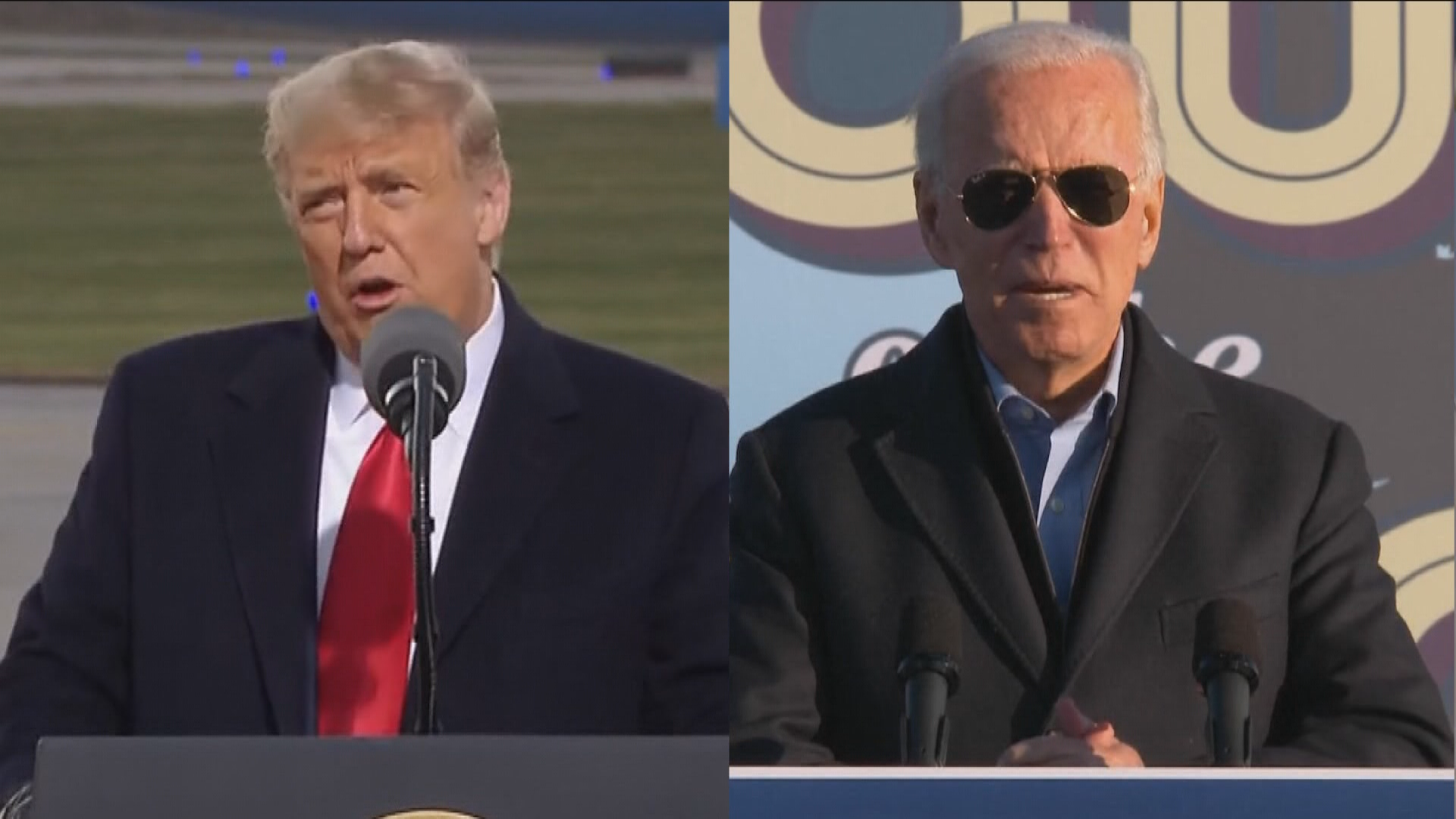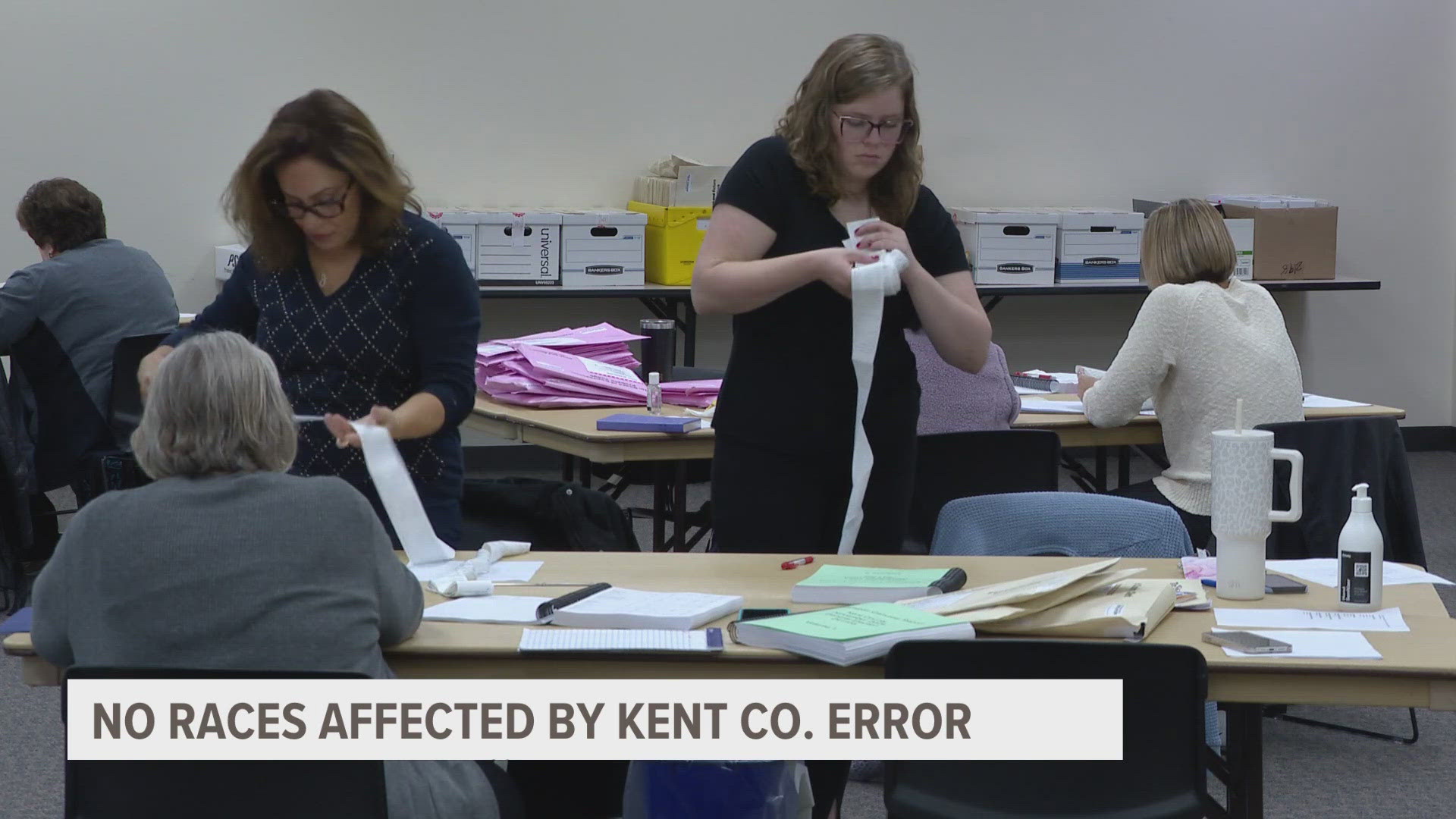The COVID-19 pandemic and the increased use of absentee voting that has come with it means the 2020 election will be like no other in recent memory.
Unlike in previous elections, when most of the results came in on election night, it may take days or even weeks this year to find out who won the election. This is partly because, in many states, postmarked ballots will still be arriving after Election Day, and provisional ballots may not be counted until after Election Day. Officials in Michigan, for example, have said that full unofficial results might not be available until Nov. 6, three days after the election. Combined with the high stakes of this election, this unique situation could give politicians at the local and national levels an opening to contest election results.
While former vice president Joe Biden has said that he will accept the results of the election even if he does not win, President Donald Trump has indicated that he may not accept the outcome if he loses. If a presidential candidate challenges the election legally, that challenge might play out in battleground states like Michigan, where the president won the 2016 election by a margin of less than 1%. 13 ON YOUR SIDE spoke with election experts about how challenges to the election, whether done by a presidential or local candidate, could play out in Michigan.
What role do poll watchers and election challengers play?
Poll watchers and election challengers are local residents who observe the election process. Election challengers are appointed by political parties and qualified interest groups, and unlike poll watchers, they can “challenge” particular voters or voting procedures. Election challengers are not allowed to challenge individual voters just because of how they look, though they might challenge the way ballots are counted, especially absentee ballots.
“Michigan challengers will be looking at any aspect, in particular of the canvassing process, that could be helpful to their candidate,” said David Levine, the Elections Integrity Fellow at the bipartisan Alliance for Securing Democracy. These challenges could be about deciding whether or not to count certain absentee ballots or provisional ballots based on things like matching signatures, he said.
And according to Steven Huefner, the Deputy Director of Election Law at The Ohio State University, people seeking to challenge the election may look for discrepancies in how ballots are being counted across jurisdictions. That’s what happened in the contested presidential election between George W. Bush and Al Gore in 2000, when the U.S. Supreme Court ruled that vote-counting discrepancies across counties violated the equal protection clause of the Fourteenth Amendment to the Constitution.
“When you have a close election, people will look really closely and find whatever they can to fight over if they’re behind,” Huefner said. “What really is going to affect whether there is some bitter fight over an outcome… [is] how close the election is. If it’s not close, there’s not much to fight over.”
Election challenges may largely take place on an individual level, but they could escalate into court battles. If an election challenger notices a problem with how a large number of ballots are being counted, it could become the basis for a recount or lawsuit.
How can a candidate request a recount?
A recount could likely be the first step in an election challenge, as it was in Bush v. Gore. A recount could take place at the local or statewide level. Michigan law allows candidates to request recounts if they are “able to allege a good-faith belief that but for fraud or mistake, the candidate would have had a reasonable chance of winning the election." If the state finds that one candidate wins an election by less than 2,000 votes, then there will be a statewide recount even if no candidate requests one.
The president has previously accused Michigan of voter fraud, but has not provided evidence for his claims. “Michigan sends absentee ballot applications to 7.7 million people ahead of Primaries and the General Election,” he tweeted on May 20. “This was done illegally and without authorization by a rogue Secretary of State. I will ask to hold up funding to Michigan if they want to go down this Voter Fraud path!” The applications were not sent illegally, though the false allegation fits the president’s campaign against mail-in voting. Trump has also suggested that he believes the election will be fraudulent unless he wins.
If a candidate petitions for a recount, another candidate may submit a counter petition arguing against a recount. In Michigan in 2016, for example, when Green Party presidential candidate Jill Stein requested a recount, the Trump campaign challenged it, arguing it would take too long. In the end, the courts denied Stein’s request because even with a recount, it was extremely unlikely she would win the election.
Recounts aren’t cheap, though, and Stein had to pay a fee of nearly a million dollars to file her request. Depending on the results of the recount, however, a candidate may receive a refund. As expensive as pursuing a recount is for a candidate, it might be even more expensive for taxpayers. During the 2016 election, then-Secretary of State Ruth Johnson estimated that a full statewide recount could cost around 5 million dollars.
And if there is a recount, it could be that not all votes are recounted. If, at a precinct, the number of votes that were recorded differs from the number of people who checked in, and if that discrepancy can’t be resolved, the precinct is not eligible for a recount. If that discrepancy only exists in absentee votes, then in-person votes at that precinct are still eligible for a recount. This was a problem in Detroit in both the recent primary election and the 2016 general election.
Could a candidate file a lawsuit?
A local or presidential candidate unsatisfied with the election results could file a lawsuit, though Huefner points out that Michigan’s election code doesn’t include a specific mechanism for suing in state court. “Many states have, in their state laws, some explicit process by which you go into court to challenge the outcome of an election; Michigan doesn’t,” he said.
While most election law disputes are likely to focus on local jurisdictions, lawsuits might also be filed in Michigan’s district court. Because of the time-sensitive nature of the situation, any court decisions would likely be decided within a matter of days. Some cases could take an expedited route to the U.S. Supreme Court, if it agrees to get involved, which it may choose not to.
According to CNN, both 2020 presidential campaigns have recruited lawyers and prepared millions of dollars to spend on legal battles.
When will we know who won the presidential election?
This year, because of increased absentee and provisional balloting, it could take longer than usual to learn the outcome of the presidential election. In many states, election officials must wait before they begin counting absentee ballots. Absentee ballots in many states will still be coming in several days after Election Day as well. In Washington State, for example, ballots can arrive as late as Nov. 23 as long as they’re postmarked by Election Day.
The constitution includes deadlines for determining the winner of an election. Dec. 8 is the deadline for resolving recounts and contests, Dec. 14 is the day electors in each state meet to vote, and Jan. 6 is when Congress convenes a joint session of the Senate and House of Representatives to count up all the electors and determine who won. These deadlines are usually considered formalities that don’t come into play, but there are procedures in place in case those deadlines are not met.
“If the election we’re conducting right now hasn’t produced a new winner” by inauguration day on Jan. 20, Trump and Pence “don’t have a claim to continue, so it would fall to the speaker of the house under the presidential succession statute” of the Constitution, Huefner said, but that’s a nightmare scenario that is extremely unlikely to occur.
As people wait for election results to come out and for potential election disputes to be resolved, Levine said people should have confidence in their local and state election officials. “People need to be very careful that if they see any issues that could exist or they hear any issues that are reported post-Election Day, that they’re cautious and calm, and make sure that they’re not simply sharing that information until they’ve confirmed it with multiple reputable sources.” This is especially important because foreign adversaries may try to spread mis- and disinformation to undermine faith in the election.
“People need to be patient, people need to understand that because of COVID-19 protocols, that election results could take longer to come out, and that’s absolutely okay,” Levine said.
►Make it easy to keep up to date with more stories like this. Download the 13 ON YOUR SIDE app now.
Have a news tip? Email news@13onyourside.com, visit our Facebook page or Twitter. Subscribe to our YouTube channel.




